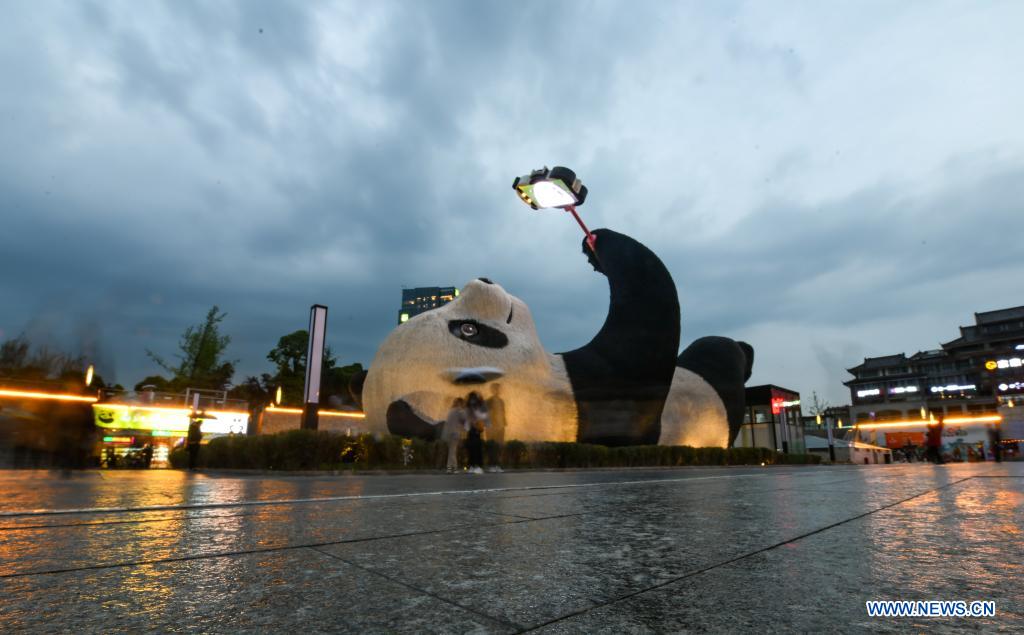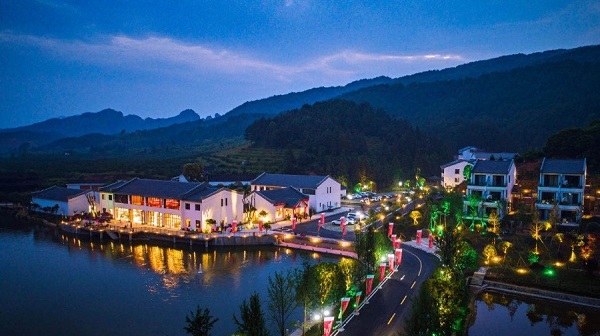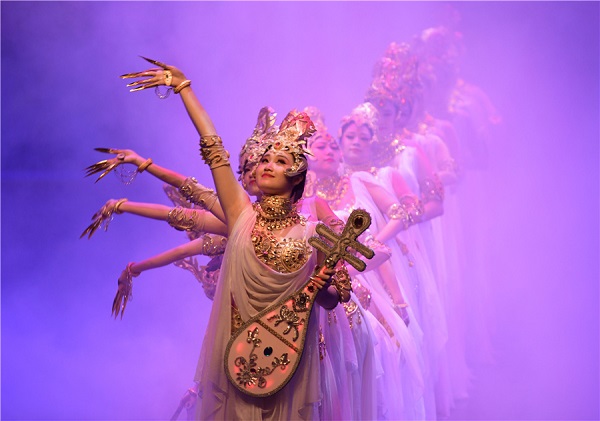Hong Kong legislature starts deliberating bill on improving electoral system
-- Published on April 13, the local amendment bill mainly comprises six areas, including reconstituting the Election Committee, providing for the method for selecting the chief executive, updating the composition and formation of the LegCo, and the candidates' eligibility, among others.
-- HKSAR Chief Executive Carrie Lam hopes the draft will be passed by lawmakers by the end of May. Hong Kong will hold the elections of the Election Committee, the seventh-term LegCo, and the sixth-term chief executive on Sept. 19, 2021, Dec. 19, 2021 and March 27, 2022, respectively.
-- "Now the electoral system suits Hong Kong's reality, has broader representation of society, and encourages more balanced and orderly political participation," said Anthony Wu, chairman of the Hong Kong Island Youth Organization Union.
HONG KONG, April 14 (Xinhua) -- Hong Kong's legislature on Wednesday started deliberating a widely-anticipated bill on improving the electoral system of the Hong Kong Special Administrative Region (HKSAR) in the latest effort to put the global financial hub back on track after disturbances in recent years.
The draft laws, in a package named the Improving Electoral System (Consolidated Amendments) Bill 2021, were brought to the Legislative Council (LegCo) for the first and second reading at a meeting early afternoon.
The local amendment came after China's top legislature on March 30 adopted the amended Annex I and Annex II to the HKSAR Basic Law, concerning methods for the selection of the HKSAR chief executive and the formation of the LegCo.
Erick Tsang, secretary for constitutional and mainland affairs of the HKSAR government, stressed the necessity of the amendment when speaking at the meeting.
The legislature was repeatedly plunged into chaos in recent years, including by the storming of rioters and malicious filibusters, resulting in the government nearly losing its power to govern Hong Kong, Tsang said.
Published on Tuesday, the local amendment bill mainly comprises six areas, including reconstituting the Election Committee, providing for the method for selecting the chief executive, updating the composition and formation of the LegCo, and the candidates' eligibility, among others.
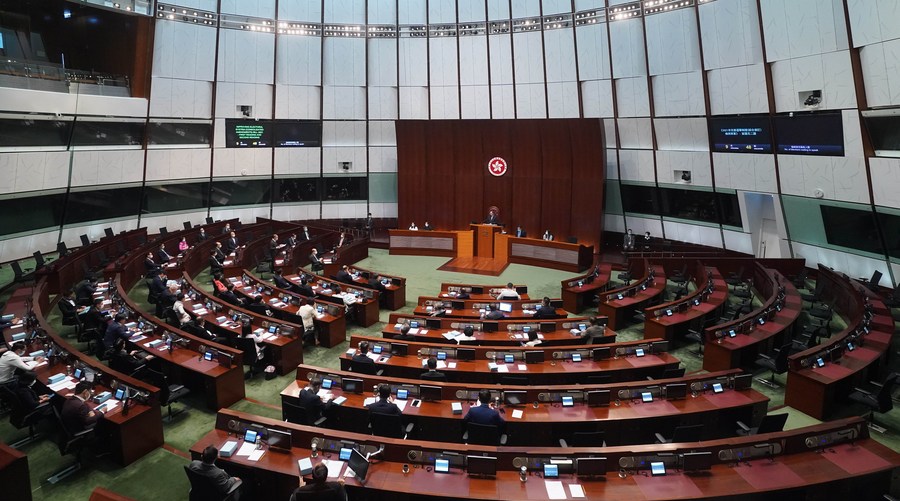
Photo taken on April 14, 2021 shows the scene of a conference of the Legislative Council (LegCo) in Hong Kong Special Administrative Region (HKSAR), south China. (Xinhua/Lui Siu Wai)
It is a very tight schedule for lawmakers to review the over-500-page bill in the coming weeks, said Martin Liao, chairman of the LegCo bills committee responsible for the draft. He vowed all-out efforts to complete the deliberations at an early date.
HKSAR Chief Executive Carrie Lam said Tuesday that she hopes the draft will be passed by lawmakers by the end of May.
The HKSAR government will fully cooperate in the work of the LegCo in scrutinizing the bill and strive for its early passage so that three major elections can be held on schedule in the next 12 months, Lam said.
Elections of the Election Committee, the seventh-term LegCo, and the sixth-term chief executive will take place on Sept. 19, 2021, Dec. 19, 2021 and March 27, 2022, respectively.
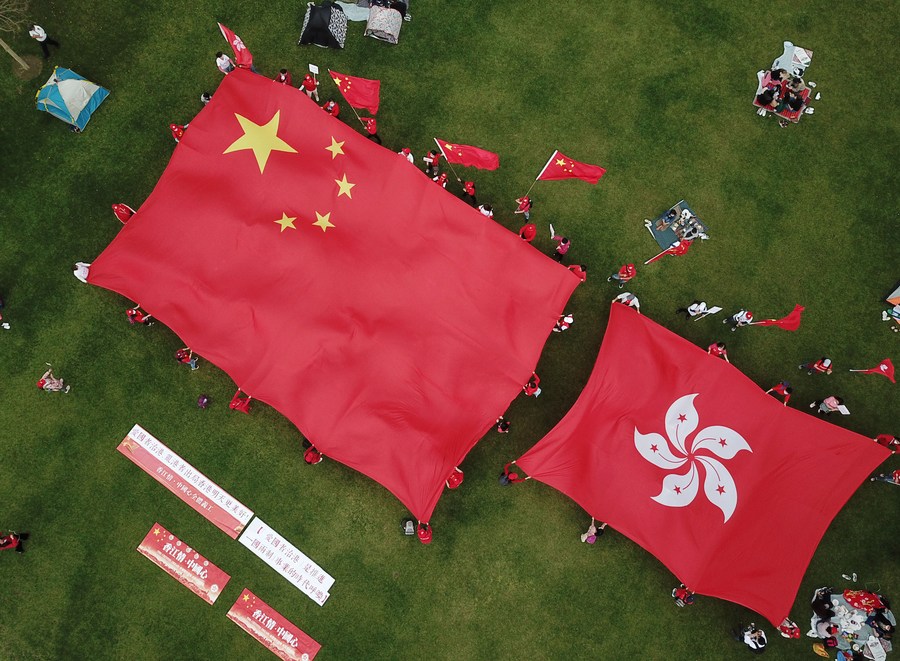
Aerial photo taken on March 6, 2021 shows citizens displaying China's national flag and the flag of the Hong Kong Special Administrative Region in support of implementing the principle of "patriots administering Hong Kong" at Tamar Park in Hong Kong, south China. (Xinhua/Li Gang)
Improving the electoral system came as another major step after last year's national security legislation to ensure peace and prosperity of the global financial hub.
It is "obviously necessary," Grenville Cross, British barrister and former director of public prosecutions in Hong Kong, said, stressing the move is fully justified after the social unrest in 2019 and the subversive activities to take control of Hong Kong's governance through electoral loopholes last year.
The "patriots administering Hong Kong" principle is also hardly uncommon, he said. "This is the case in countries around the world. People have to have the best interests of their country at heart. Otherwise, there's no future for them in democratic politics."
Under the electoral improvement, the membership of the Election Committee, which elects the HKSAR chief executive and part of LegCo members and nominates LegCo candidates, has been expanded from 1,200 to 1,500. The number of LegCo members has also been increased from 70 to 90.
Anthony Wu, chairman of the Hong Kong Island Youth Organization Union, believes the electoral changes will advance Hong Kong's democratic progress.
"Now the electoral system suits Hong Kong's reality, has broader representation of society, and encourages more balanced and orderly political participation," he said, adding that he is looking forward to more youth representatives joining the electoral system.

A pedestrian walks past a poster on improving electoral system and ensuring patriots administering Hong Kong in south China's Hong Kong, March 31, 2021. (Xinhua/Wu Xiaochu)
Improving the electoral system has become a consensus in Hong Kong. Over 2.38 million people signed a petition in March to show their support and a survey said some 70 percent of respondents believe the improved electoral system will brighten Hong Kong's prospects.
The new democratic electoral system will prevent the political chaos seen over the recent years and restore a reasonable, orderly legislative climate, Allen Shi Lop-tak, president of the Chinese Manufacturers' Association of Hong Kong, said. "Thereafter we can focus on improving people's living standards and reviving the economy."
Yuen Mo, chairman of the Chinese General Chamber of Commerce of Hong Kong, said, "We hope the LegCo will approve the bill as soon as possible to lay a solid foundation for a stable society and a prosperous economy in Hong Kong."
Photos
Related Stories
- Hong Kong publishes bill on improving electoral system
- HKSAR gov't officials stress public responsibility of safeguarding national security
- Improving electoral system conducive to Hong Kong's democratic, economic development: HKSAR gov't officials
- Commentary: Patriots to administer HK, not rebels
- HKSAR electoral system improvement enjoys solid political, legal foundations: experts
Copyright © 2021 People's Daily Online. All Rights Reserved.








